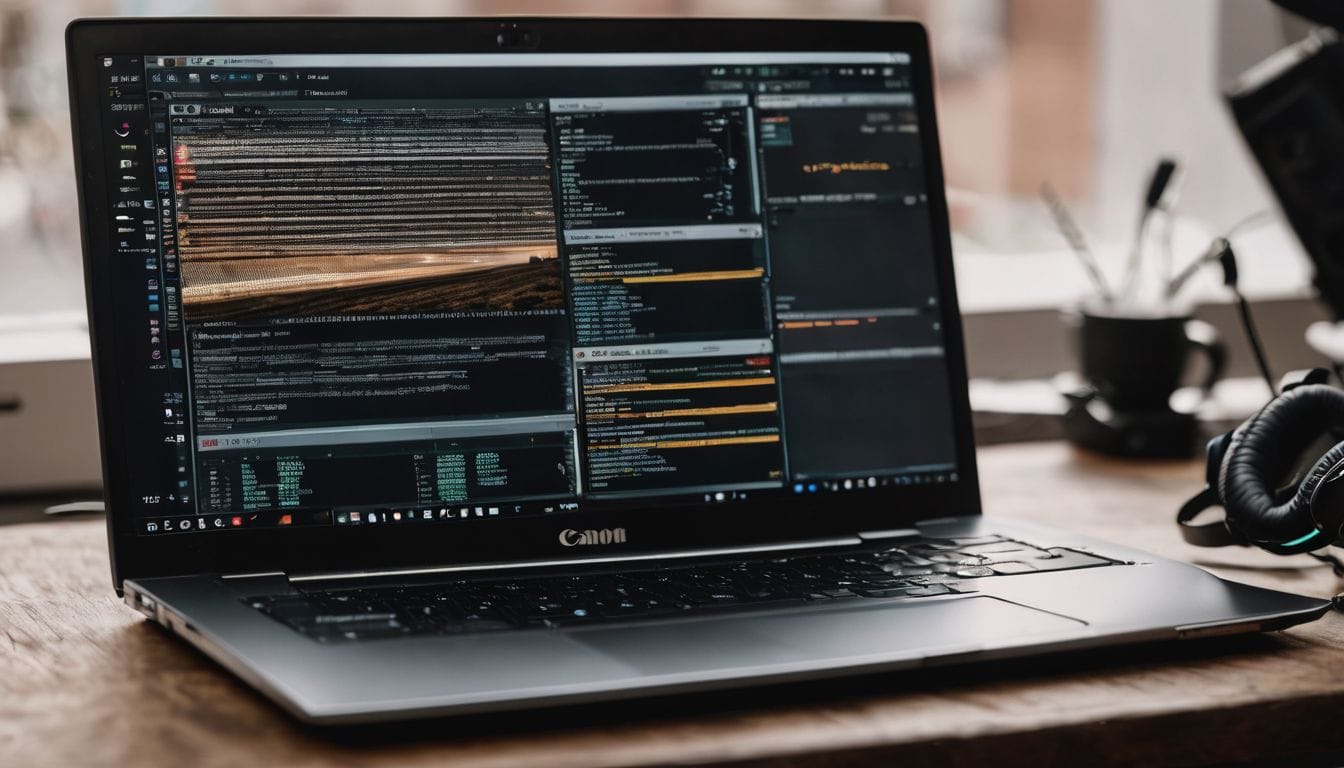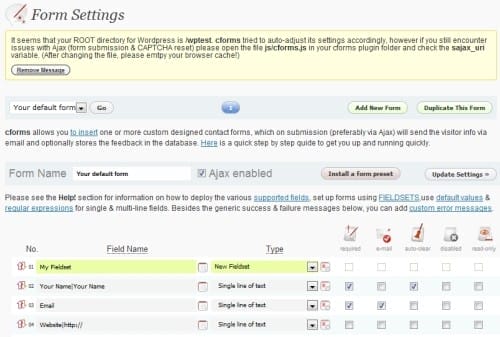Mastering Full Stack Developer Technical Interview Questions: A Comprehensive Guide

Key Takeaways
- Full stack developers are responsible for both front-end and back-end development of websites or applications.
- To excel in a full stack developer interview, be prepared to answer technical proficiency questions, showcase problem-solving skills, and demonstrate communication and teamwork abilities.
- Strategies for mastering full stack developer interviews include thorough preparation, demonstrating technical proficiency through previous projects and coding samples, and approaching problem-solving scenarios with structured strategies.
Understanding Full Stack Development
A Full Stack Developer is responsible for both the front-end and back-end development of a website or application, utilizing a variety of programming languages such as HTML, CSS, and JavaScript.Definition and role of a Full Stack Developer
A Full Stack Developer is like a jack-of-all-trades in web design. They know how to build every part of a website. This includes the front end, or what you see on the screen. It also includes the back end, which is all the behind-the-scenes coding that makes the site work. Lastly, it involves databases that store information from users or for the site to use later. The role of a Full Stack Developer is to plan, code and test websites or online apps. They need skills in many areas but are valued because they can make complete websites alone.Skills and tools required for Full Stack Development
To become a full stack developer, you need a combination of technical skills and proficiency with various tools. Here are the essential skills and tools you should have:- Proficiency in programming languages: You should be experienced in languages like Java, JavaScript, Python, or Ruby. These languages are widely used in full stack development.
- Web development knowledge: Understanding HTML, CSS, and JavaScript is crucial for creating user interfaces and designing responsive websites.
- Database management: Familiarity with SQL and NoSQL databases is important for storing and retrieving data efficiently.
- Version control systems (e.g., Git): Knowing how to use version control systems helps you manage code changes effectively and collaborate with other developers.
- Frameworks and libraries: Being proficient in frameworks like Node.js, React.js, or AngularJS can speed up your development process and enhance the functionality of your web applications.
- DevOps skills: Full stack developers should understand deployment processes, server management, and cloud platforms like AWS or Azure.
- Problem-solving abilities: Being able to identify issues and find practical solutions is crucial for successful full stack development.
- Continuous learning mindset: The tech industry evolves rapidly; staying updated with the latest trends and technologies will help you remain competitive as a full stack developer.
Common Full Stack Developer Interview Questions
Common Full Stack Developer Interview Questions include assessing technical proficiency, problem-solving abilities, and communication and teamwork skills.Technical proficiency questions
To excel in a Full Stack Developer interview, you must be prepared to showcase your technical skills. Here are some common technical proficiency questions that you may encounter:- Explain the difference between HTML and CSS.
- How would you create a responsive website design?
- What programming languages have you worked with, and what are their main uses?
- Can you explain object – oriented programming and provide an example?
- Describe how databases work and the different types of databases you have experience with.
- Have you used any frameworks or libraries for web development? If so, which ones and why?
- How do you handle debugging in your coding process?
- What security measures should be taken when developing a web application?
Problem-solving scenarios
Problem-solving is a crucial skill for full stack developers. During interviews, you may be asked to demonstrate your ability to solve various scenarios. Here are some common problem-solving scenarios you may encounter:- Building a responsive website: Describe how you would design and develop a website that can adapt to different screen sizes and devices.
- Debugging a code error: Explain your approach to finding and fixing bugs in a piece of code. Share any tools or techniques you would use.
- Optimizing website performance: Discuss strategies for improving the speed and efficiency of a website, such as reducing file size, optimizing images, or caching data.
- Handling database errors: Describe how you would troubleshoot and resolve issues related to database connections, queries, or data integrity.
- Resolving compatibility issues: Explain how you would address problems with browser compatibility or conflicts between different libraries or frameworks.
- User experience improvements: Propose ways to enhance the user experience of an existing application or website by considering factors like navigation, accessibility, and usability.
- Scaling an application: Discuss the steps you would take to ensure that an application can handle increasing amounts of traffic or data without performance degradation.
Communication and teamwork skills
Communication and teamwork skills are essential for a successful full stack developer. Here are some key points to remember:- Clear and effective communication: Communicating ideas, plans, and progress clearly with team members and stakeholders is crucial in collaborative projects.
- Active listening: Paying attention to others’ ideas, feedback, and concerns helps build trust and fosters a positive working environment.
- Collaboration: Working well with others in cross-functional teams, sharing knowledge, and offering support promotes a collaborative and productive workflow.
- Problem-solving together: Being able to collaborate on problem-solving tasks and brainstorming ideas with team members strengthens the overall development process.
- Adaptability: Being open to different perspectives, adapting to changes, and embracing new technologies or techniques contributes to a dynamic development environment.
What are some Essential Tips for Mastering Data Science Interview Preparation?
While prepping for a data science interview, it is important to bear in mind a few essential pointers. Start by cultivating a sound comprehension of basic principles and algorithms related to data science. Enhancing your coding abilities is also critical to efficiently solve technological issues. Working with real data science issues and keeping up-to-date with industry shifts will additionally boost your preparedness for a data science interview.
What Are Some Technical Interview Questions for Full Stack Developer Positions?
What are some technical interview questions for Full Stack Developer positions? Full stack developers need to possess a wide range of technical skills. They should be able to answer questions about database systems, front-end and back-end frameworks, as well as software development methodologies. They might also be asked about algorithms and data structures, agile development practices, version control systems, and email subject line capitalization.
– How Can Technical Interview Preparation Help Thrive in Software Development Without a Degree?
Technical interview preparation is crucial for software developers to thrive without a degree. By mastering problem-solving, algorithms, and data structures, candidates can impress potential employers. Additionally, polishing communication and teamwork skills are essential. These tips for software developers can help secure promising opportunities in the competitive software development industry.
– How Can I Showcase My Full Stack Developer Skills in a Creative Resume Design?
Incorporating unique visuals and layouts in your resume can effectively showcase your full stack developer skills. Creative resume designs attract employers by grabbing their attention and demonstrating your ability to think outside the box. Use innovative graphics, colors, and typography to make a lasting impression and stand out from the competition.
How Can Understanding Web Designs Help in Mastering Full Stack Development?
Understanding impressive blue web designs is crucial for mastering full stack development. It allows developers to create visually appealing and user-friendly websites that enhance the overall experience. It also helps in building a strong foundation for front-end and back-end development, resulting in a well-rounded skill set.
Strategies for Mastering Full Stack Developer Interviews
Prepare thoroughly for the interview, demonstrate technical proficiency, employ problem-solving strategies, and effectively communicate and work as a team.Preparing for the interview
To prepare for a full stack developer interview, here are some steps you can follow:- Research the company: Learn about the company’s goals, projects, and values. This will help you understand their needs and align your skills accordingly.
- Review technical concepts: Brush up on programming languages like HTML, CSS, Java, and other relevant languages. Make sure you understand database systems, front-end and back-end development, and other key concepts related to full stack development.
- Build a portfolio: Showcase your previous projects to demonstrate your skills and experience. Include both personal projects and any work you have done for clients or employers.
- Practice coding: Solve coding challenges and practice implementing different algorithms and data structures. This will help improve your problem-solving abilities and boost your confidence during technical interviews.
- Prepare for behavioral questions: Expect questions about teamwork, communication skills, and how you handle certain situations. Prepare examples from past experiences that highlight these skills.
- Mock interviews: Practice mock interviews with a friend or mentor to simulate the real interview scenario. Get feedback on your answers and work on improving any areas of weakness.
- Stay updated with industry trends: Follow blogs, forums, and online communities to stay up-to-date with the latest tools, technologies, and trends in full stack development.
Demonstrating technical proficiency
To impress employers during a full stack developer interview, it is crucial to demonstrate your technical proficiency. Here are some strategies to help you showcase your skills effectively:- Showcase your experience: Highlight your previous projects and experiences that showcase your technical abilities in full stack development.
- Discuss programming languages: Talk about the programming languages you are proficient in, such as Java, HTML, CSS, and JavaScript. Explain how you have used them in your previous work.
- Demonstrate problem-solving skills: Share examples of challenges you have faced during projects and how you utilized your technical knowledge to overcome them.
- Discuss software engineering principles: Show that you understand software engineering concepts, such as data structures, algorithms, and version control systems like Git.
- Provide coding samples: Bring along code samples or a portfolio to visually demonstrate your coding skills during the interview.
- Stay updated: Stay up-to-date with the latest trends and technologies in full stack development by participating in online courses or attending webinars.
Problem-solving strategies
To excel in full stack developer interviews, it’s crucial to approach problem-solving scenarios with the right strategies. Here are some tips to help you navigate these situations:- Break down the problem: Start by analyzing the problem and breaking it down into smaller, more manageable parts. This will help you understand the problem better and come up with a structured solution.
- Use pseudocode or diagrams: Visualize your solution by using pseudocode or diagrams. This will make it easier to identify any potential issues or gaps in your logic before writing actual code.
- Test your solution: Once you have implemented your solution, test it thoroughly to ensure that it produces the expected results. This will demonstrate your attention to detail and ability to validate your work.
- Communicate your thought process: During the interview, explain your thought process behind each step of solving the problem. This will showcase your ability to think critically and articulate your ideas effectively.
- Ask for clarification when needed: If you encounter ambiguity or uncertainty within the problem statement, don’t hesitate to ask for clarification. This shows that you value clear communication and want to fully understand the requirements.
- Demonstrate adaptability: Be open to feedback and be willing to adjust or optimize your solution based on new information or suggestions from the interviewer.
Effective communication and teamwork
To succeed as a full stack developer, it’s important to have effective communication and teamwork skills. Here are some ways to improve in this area:- Be a good listener: Actively listen to others when they are sharing ideas or explaining requirements. This shows respect and helps you understand their perspectives better.
- Clear communication: Clearly communicate your thoughts, ideas, and progress updates to your team members. Use simple language and avoid technical jargon that others may not understand.
- Collaboration: Work well with others by collaborating on projects and tasks. Be open to feedback and suggestions from teammates, as this promotes a positive team dynamic.
- Conflict resolution: When conflicts arise, handle them professionally and constructively. Focus on finding solutions rather than getting caught up in blame or personal disagreements.
- Flexibility: Adapt to changes in project goals or team dynamics without resistance. Being flexible allows you to work effectively in different situations and with different people.
- Remote collaboration: If working remotely, use communication tools like video calls, instant messaging apps, and project management software to stay connected with your team members.





